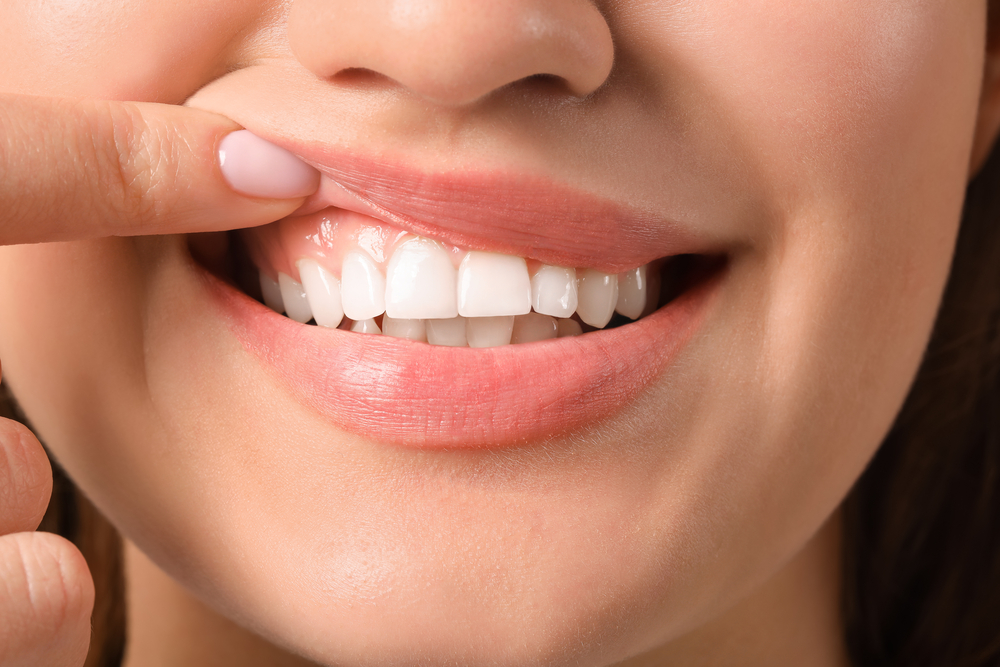Gum disease, also known as periodontal disease, is a common but preventable condition that affects the gums and bones supporting the teeth. It’s an issue that can range from mild inflammation (gingivitis) to serious disease that results in damage to the soft tissue and bone. Preventing gum disease is crucial for maintaining overall oral health and avoiding more severe dental problems in the future. Here are some effective tips and tricks to help you keep your gums healthy and prevent gum disease.
Understanding Gum Disease
Gum disease begins with bacterial growth in your mouth and may end with tooth loss if not properly treated. The primary cause of gum disease is the accumulation of plaque — a sticky, colorless film of bacteria that forms on your teeth. When plaque is not removed through daily brushing and flossing, it can harden into tartar, which only a professional cleaning by a dentist or dental hygienist can remove.
The early stage of gum disease is gingivitis, which is characterized by red, swollen gums that bleed easily. Fortunately, gingivitis can usually be reversed with good oral hygiene. However, if left untreated, gingivitis can progress to periodontitis. At this stage, the inner layer of the gum and bone pull away from the teeth and form pockets. These small spaces between teeth and gums can collect debris and become infected. If not treated, the bones, gums, and tissue that support the teeth are destroyed.
Tips for Preventing Gum Disease
1. Brush Your Teeth Properly: Brush your teeth at least twice a day using a fluoride toothpaste. Make sure to use a toothbrush with soft bristles and replace it every three to four months, or sooner if the bristles are frayed. Position your toothbrush at a 45-degree angle to your gums and use short, gentle strokes to clean all surfaces of your teeth and tongue.
2. Floss Daily: Flossing removes plaque and food particles from between your teeth and under the gum line, areas your toothbrush can’t reach. Use about 18 inches of floss, winding most of it around each middle finger, and leave an inch or two to work with. Gently slide it between your teeth and curve it against one tooth. Rub the floss gently up and down, continuing to floss each tooth with a clean section of floss.
3. Use Mouthwash: Antibacterial mouthwashes can reduce bacteria in the mouth, which helps prevent gum disease. Rinse with an antimicrobial mouthwash daily to reduce plaque and prevent gingivitis. Mouthwash also helps remove food particles and debris from your mouth, although it is not a substitute for brushing and flossing.
4. Maintain a Healthy Diet: A balanced diet can help prevent gum disease by providing essential nutrients to maintain healthy gums. Foods rich in vitamin C and E, antioxidants, and omega-3 fatty acids can promote gum health. Avoid sugary and acidic foods and drinks, as they can contribute to plaque buildup and gum disease.
5. Regular Dental Check-ups: Visit your dentist regularly for professional cleanings and check-ups. Regular dental visits help detect early signs of gum disease, and professional cleanings remove tartar that cannot be eliminated by brushing and flossing alone. Your dentist can also provide personalized advice for improving your oral hygiene routine.
6. Quit Smoking: Smoking is strongly associated with the onset of gum disease. Tobacco use weakens your immune system, making it harder to fight off a gum infection. Additionally, smoking hampers the healing process of your gums. Quitting smoking is one of the best things you can do for your gum health.
7. Manage Stress: Stress can negatively impact your oral health by increasing your risk of gum disease. It can impair your immune system, making it more difficult for your body to fight off infections. Practice stress-reducing techniques such as yoga, meditation, or exercise to maintain overall health and support gum health.
8. Stay Hydrated: Drinking plenty of water helps wash away food particles and bacteria, keeping your mouth clean. Water also stimulates saliva production, which naturally cleanses your mouth and neutralizes acids produced by plaque bacteria.
Special Consideration: Ulcerative Gingivitis
Some individuals may suffer from a more severe form of gum disease known as ulcerative gingivitis, also referred to as necrotizing ulcerative gingivitis (NUG) or trench mouth. This condition is characterized by painful, bleeding gums, bad breath, and ulcers on the gums. Ulcerative gingivitis is often associated with poor oral hygiene, smoking, stress, and a compromised immune system.
Preventing ulcerative gingivitis involves rigorous oral hygiene practices, such as those mentioned above. It’s essential to seek prompt treatment if you notice symptoms of ulcerative gingivitis. Your dentist may recommend professional cleaning, antibiotics, and specialized oral care products to manage the condition effectively.
Preventing gum disease is an ongoing commitment to good oral hygiene and healthy lifestyle choices. By brushing and flossing daily, using mouthwash, maintaining a balanced diet, and visiting your dentist regularly, you can significantly reduce your risk of gum disease. For those suffering from ulcerative gingivitis, timely professional care and meticulous oral hygiene are critical for managing and preventing the condition. Remember, a healthy smile starts with healthy gums, so take the necessary steps to protect your periodontal health today.

